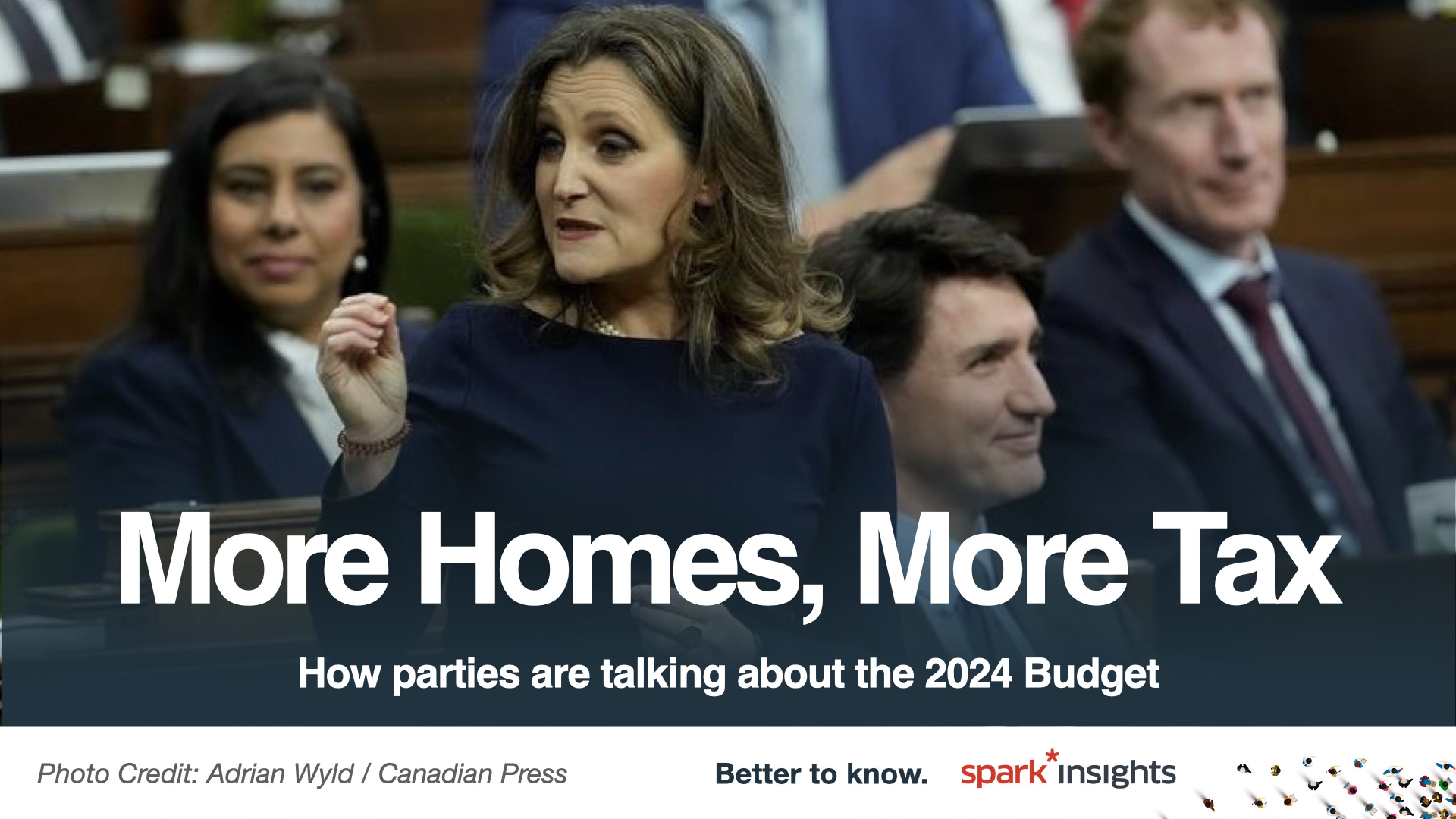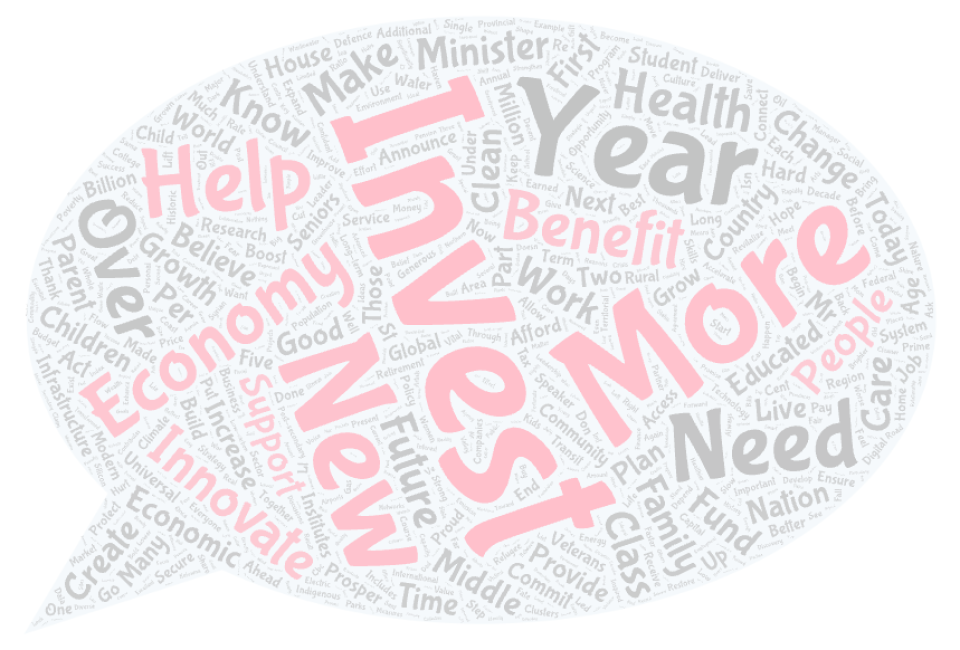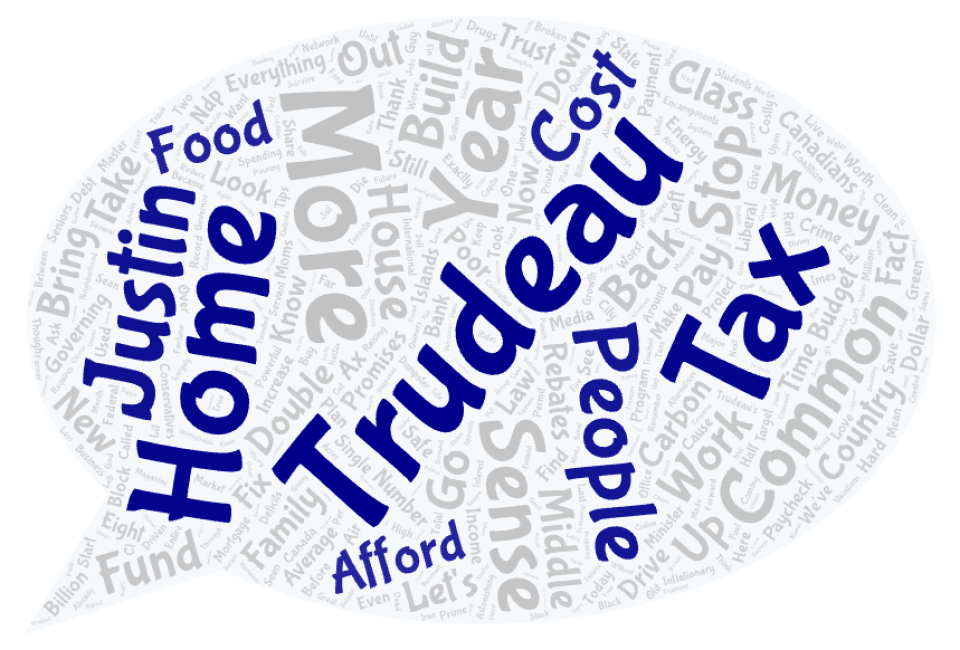Subscribe for more!
Subscribe to our newsletter for insights and articles on wide ranging issues including reputation management, branding, advertising, awareness, advocacy, and communications. You can unsubscribe anytime.
Follow us on social:

What can we learn from the words politicians chose for their scripted remarks on Budget 2024?
Budget Days are a launching off point for the political narratives each party wants to talk about in the coming year. Politicians and their staff spend weeks musing over word choices to include in the Budget Speech and the opposition Budget reaction, and there is strategy behind everything said in front of a camera that day.
When I worked in the Prime Minister's Office, we would test the language used in the Budget Speech in focus groups, with Canadians turning a dial to indicate if they liked what the Finance Minister was saying or not. Messages that resonate on the day get repeated for months as the government does their post-budget tour of the country echoing key policies in local communities. Meanwhile, messages that are considered confusing get re-written and strategies chance. It's a safe bet a similar exercise is going on now, in both the government an opposition offices.
With all this thought going into the words being used, we wanted to look at the choices being made and see what it says about the opportunities each party sees in the Budget this year.
First off, here's a visualization of the text of the Budget Speech delivered by Chrystia Freeland, with words being used multiple times appearing in larger fonts:

For the Liberals, the Budget isn't a stark departure from the way they've been governing, rather it's an additional investment to do "more" (39 mentions) for Canadians.
In particular, Freeland's speech emphasized housing, with more references to "homes" and "houses" than any other policy area. Housing policy also gets the best real estate in the budget speech - the first policy mentioned is "building more homes at a pace and scale not seen since after the Second World War".
The government knows many networks will cut away from the speech in the House after the first few minutes, so the emphasis on youth and housing policies early on suggest this is the topic the Liberals want Canadians to notice the most.
Google trends from Budget Day suggest they haven't been very successful at centring the conversation on housing so far, as housing measures received much less attention on Google than the capital gains tax measures.
But the Liberals aren't trying to avoid the capital gains tax conversation either. The measure was mentioned 10 times in the budget speech, among the most prominent policy topics.
How does this compare to past Liberal Budget Speeches?
Here's a word cloud for the first Liberal Budget speech under Trudeau in 2016:

In 2016, the top buzzword was "invest" (43 mentions), and "new" (29) things were talked about as much as "more" (31) things.
Bill Morneau (who has been critical about the recent budget) talked far more about the "economy" (29 mentions) than Freeland did this year (7). He also made twice as many references to "innovation" and the "middle class".
As was the case when we looked at the language used by political parties in the House of Commons throughout 2023, the word choice of the Trudeau Liberals has clearly shifted over the years from disruptive language focused on change and the middle class, to more continuity-focused language with promises of stability and improvements in the delivery of long-term priorities.
As for Pierre Poilievre:

The Conservative leader's response to the budget was confrontational, but disciplined. Poilievre mentioned Trudeau 22 times, but otherwise kept the conversation focused on the affordability pressures Canadians are feeling, especially the cost of housing (19) and food (10), and his concerns that taxation (21) measures could make things even more unaffordable for the middle class.
The words used on budget day hint suggest two clear strategies for the Liberals and CPC moving forward. Expect the Liberal echo announcements for the budget to focus more on how housing measures will affect young people in communities across the country. And expect the Conservatives to keep the pressure on affordability issues where they have had success building a narrative that life has become less affordable under the current government.
spark*insights is led by Bruce Anderson, one of Canada’s leading and most experienced public opinion researchers. From polling and research to analysis and guidance, we help organizations, uncover the factors driving or influencing public perception to gain valuable insights into the shape and movement of the landscape.